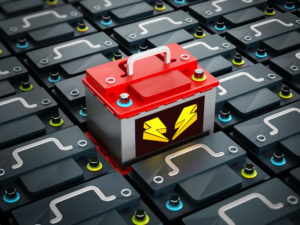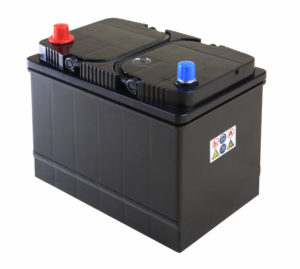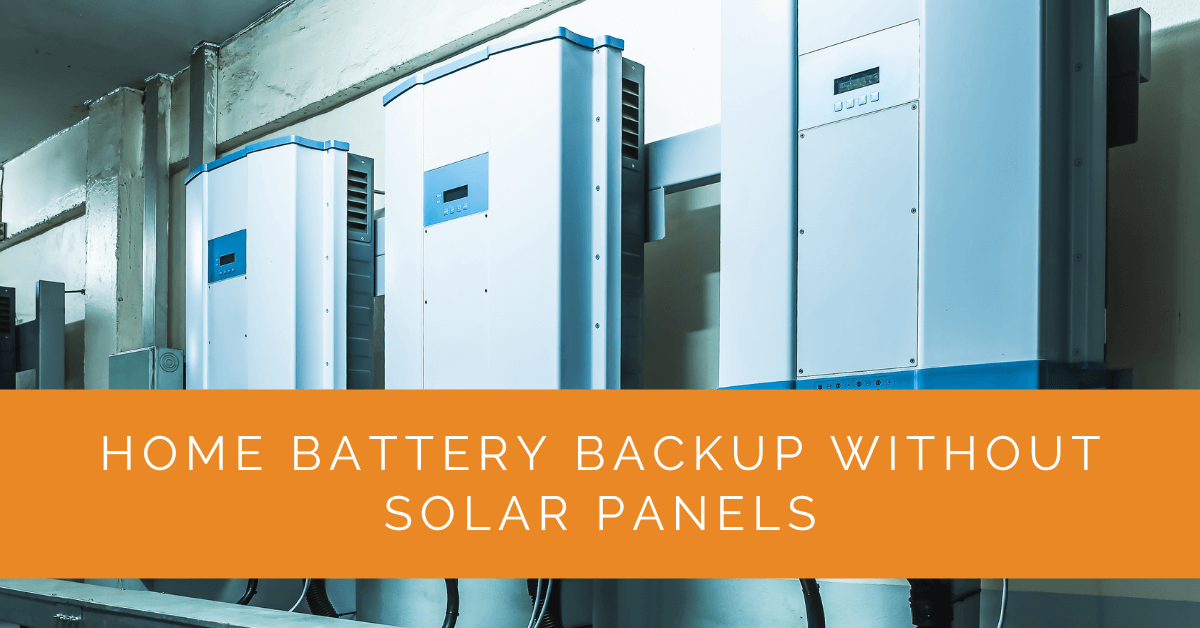Home battery backup systems have garnered significant attention due to their capacity to provide reliable power during outages and optimize energy consumption. While these systems are often associated with solar panel installations, it’s worth noting that you can harness the advantages of battery storage without the need for solar panels. This guide will delve deeply into standalone home battery backup systems, unraveling their inner workings, highlighting their manifold advantages, and shedding light on leveraging tax credits to your benefit.
Contents
- 1 Key Takeaways
- 2 How Standalone Home Battery Backup Systems Work
- 3 Home Battery Backup Sizing Calculator
- 4 Advantages of Home Battery Backup Without Solar Panels
- 5 Tax Credits and Incentives
- 6 Installing Standalone Battery Backup
- 7 Case Study: Implementing Standalone Home Battery Backup Systems
- 8 Expert Insights From Our Solar Panel Installers About Home Battery Backup Without Solar Panels
- 9 Experience Solar Excellence with Us!
- 10 Conclusion
- 11 FAQ
Key Takeaways
- Standalone home battery backup systems provide reliable power during outages and offer energy savings even without solar panels.
- Understanding the key components, such as battery storage units and inverters, is crucial for optimizing backup power systems.
- Leveraging tax credits and incentives can make investing in standalone battery backup systems a financially sound decision.
How Standalone Home Battery Backup Systems Work
Key Components of a Battery Backup System
Battery Storage Unit
A robust battery storage unit is at the core of any home battery backup system. These units serve as the energy reservoir, storing electrical energy to be drawn upon during power outages or periods of elevated electricity demand. The choice of battery type, capacity, and how you maintain it significantly influences the effectiveness of your backup power system.
Types of Batteries Used
Different battery chemistries are available, each with its unique set of characteristics. We will delve into lithium-ion and lead-acid batteries, comparing their pros and cons to guide you in making an informed decision.
Capacity and Energy Storage
Determining the right battery capacity is essential to ensure an adequate energy reserve to power your home during outages. We will provide detailed insights into calculating your capacity needs accurately.
Lifespan and Maintenance
The lifespan of your battery storage unit and its maintenance requirements can substantially impact your long-term costs. We will share strategies for extending the life of your battery storage unit and outline maintenance best practices.
Inverter Power
Inverter technology is pivotal in transforming the stored DC (direct current) electricity into your home’s AC (alternating current) power. A profound understanding of inverter types, AC and DC coupling, and compatibility is essential for the seamless operation of your backup power system.
Inverter Types
Discover the diverse array of inverter types, including grid-tied and off-grid inverters, and learn how each type suits different applications and scenarios.
AC and DC Coupling
Delve into the nuances of AC and DC coupling and their impact on your home’s backup power capabilities. Understanding these concepts is crucial for tailoring your system to your specific needs.

The Functionality of a Standalone Battery Backup System
Standalone home battery backup systems are designed to focus on reliability and user-friendliness. We will provide a comprehensive overview of their core functionality, covering essential aspects such as:
- Charging and Discharging: Gain insight into how your backup power system charges during non-outage periods and discharges when needed to ensure an uninterrupted power supply.
- Seamless Transition during Power Outages: Learn how the system seamlessly detects power outages and switches to battery power, ensuring your lights stay on and your appliances run smoothly.
- Monitoring and Control: Discover how you can easily monitor the health and performance of your standalone battery backup system through user-friendly interfaces and mobile apps.
Home Battery Backup Sizing Calculator
Estimate the battery capacity you need to keep essentials running during an outage:
Advantages of Home Battery Backup Without Solar Panels
Standalone home battery backup systems offer many advantages that can significantly enhance the resilience and efficiency of your home’s energy infrastructure.
Reliability during Power Outages
Among the most compelling advantages of standalone home battery backup systems is their reliability during power outages. With a properly sized battery storage unit and an efficient inverter, you can ensure that your essential appliances remain operational, providing safety and comfort for your family.
Energy Savings and Utility Bill Management
Standalone battery systems extend their benefits beyond backup power. They enable you to optimize your energy usage and achieve substantial savings on your utility bills.
- Peak Load Shaving: Dive deep into how your battery system can significantly reduce your electricity consumption during peak rate periods, leading to noteworthy cost savings.
- Time-of-Use Optimization: Explore strategies for utilizing stored energy during high-demand hours when electricity costs are at their zenith.
- Potential for Grid-Tied Systems: Learn how to configure your standalone battery backup system for grid-tied operation, allowing you to feed excess energy back to the grid and potentially earn credits.

Tax Credits and Incentives
One of the most enticing aspects of standalone home battery backup systems is their eligibility for tax credits and incentives. We will provide comprehensive information on this subject, covering:
Available Tax Credits for Battery Storage
Uncover the federal and state-level tax credits available for home battery storage. We will outline the eligibility criteria and walk you through the application process, ensuring you maximize your savings and financial benefits.
Installing Standalone Battery Backup
Choosing the Right System
The appropriate battery storage unit and inverter are pivotal for a successful installation. We will guide you through sizing your battery, choosing an inverter, and determining the ideal placement for your battery system.
Maintenance and Long-Term Care
Ensuring the longevity and efficiency of your standalone battery backup system necessitates regular maintenance. Our in-depth guidance will cover monitoring system health, addressing common maintenance tasks, and employing strategies to maximize your battery’s lifespan.
Case Study: Implementing Standalone Home Battery Backup Systems
Background
At Solar Panels Network USA, we are dedicated to providing innovative energy solutions that cater to the diverse needs of our clients. Recently, we undertook a project to install a standalone home battery backup system for a client who wanted to enhance their energy security without incorporating solar panels.
Project Overview
The client, a homeowner in an area prone to frequent power outages, sought a reliable backup power solution to ensure continuous operation of essential appliances. The primary goal was to install a system that could provide backup power during outages and optimize energy consumption to reduce utility costs.
Implementation
After a thorough assessment of the client’s energy needs, we recommended a high-capacity lithium-ion battery storage unit paired with a sophisticated inverter. The system was designed to provide seamless transition during power outages and optimize energy usage during peak demand periods.
Battery Storage Unit: We selected a robust lithium-ion battery due to its high energy density, long lifespan, and low maintenance requirements. The battery’s capacity was calculated based on the client’s energy consumption patterns to ensure adequate power during outages.
Inverter Installation: An advanced grid-tied inverter was installed to convert the stored DC electricity into AC power for household use. This inverter was chosen for its efficiency and ability to manage the seamless transition between grid power and battery power.
Results
The standalone home battery backup system successfully met the client’s needs, providing reliable power during outages and optimizing energy usage to achieve significant cost savings.
Reliability During Outages: The system provided uninterrupted power during several outages, ensuring the client’s essential appliances remained operational. The seamless transition between grid power and battery power minimized disruption and enhanced comfort.
Energy Savings: By utilizing stored energy during peak rate periods, the client achieved notable savings on their utility bills. The system’s ability to manage energy consumption effectively demonstrated the financial benefits of standalone battery backup systems.
Tax Credits and Incentives: The client was able to take advantage of available tax credits for the battery storage system, further enhancing the financial viability of the investment. We guided the client through the application process to ensure they maximized their savings.
Summary
Our experience with standalone home battery backup systems highlights their effectiveness in providing reliable power and optimizing energy consumption, even without solar panels. The successful implementation of this project underscores the potential of battery storage solutions to enhance energy security and achieve cost savings. At Solar Panels Network USA, we continue to leverage advanced technologies to meet our clients’ evolving energy needs and promote sustainable energy solutions.
Expert Insights From Our Solar Panel Installers About Home Battery Backup Without Solar Panels
Standalone battery backup systems are a fantastic solution for those looking to ensure energy security without investing in solar panels. They provide reliable power during outages and help manage energy consumption effectively.
Senior Solar Installer
One of the major benefits of standalone battery systems is their ability to optimize energy usage. By storing energy during low-cost periods and using it during peak times, homeowners can see substantial savings on their utility bills.
Lead Solar Technician
Even without solar panels, home battery backup systems can qualify for tax credits and incentives, making them a smart financial investment for those looking to enhance their home’s energy resilience.
Solar Installation Manager
Experience Solar Excellence with Us!
Trust in Solar Panels Network USA, where our seasoned experts deliver top-quality solar solutions for homes and businesses nationwide. With a legacy of countless successful installations and a commitment to sustainable energy, we’re your reliable partner in the solar journey. Ready for a brighter, eco-friendly future? Call us now at (855) 427-0058 and harness the power of the sun!
Conclusion
Standalone home battery backup systems represent a versatile and efficient solution for powering your home during outages and optimizing your energy consumption, all without solar panels. With the added advantage of access to tax credits and incentives, investing in a standalone battery backup system is a practical and financially prudent choice. Delve deeper into the world of backup power and embrace the peace of mind that comes with a reliable energy system capable of keeping your lights on when the grid experiences disruptions. Explore the potential of standalone home battery backup, and seize the opportunity to secure your energy needs and reduce your long-term utility costs.
FAQ
Can I get a house battery without solar?
Yes, you can get a house battery without solar panels. Standalone home battery backup systems are designed to provide reliable backup power independently of solar energy.
Is it worth getting a battery without solar?
Getting a battery without solar panels can be worth it, especially if you prioritize reliable backup power during outages and seek to optimize your energy consumption for cost savings. Standalone battery systems offer various advantages, including grid-tied options and access to tax credits, making them a valuable addition to your home’s energy infrastructure.
About the Author
Solar Panels Network USA stands at the forefront of solar energy solutions, driven by a team of seasoned solar engineers and energy consultants. With over decades of experience in delivering high-quality solar installations and maintenance, we are committed to promoting sustainable energy through customer-centric, tailored solutions. Our articles reflect this commitment, crafted collaboratively by experts to provide accurate, up-to-date insights into solar technology, ensuring our readers are well-informed and empowered in their solar energy decisions.

